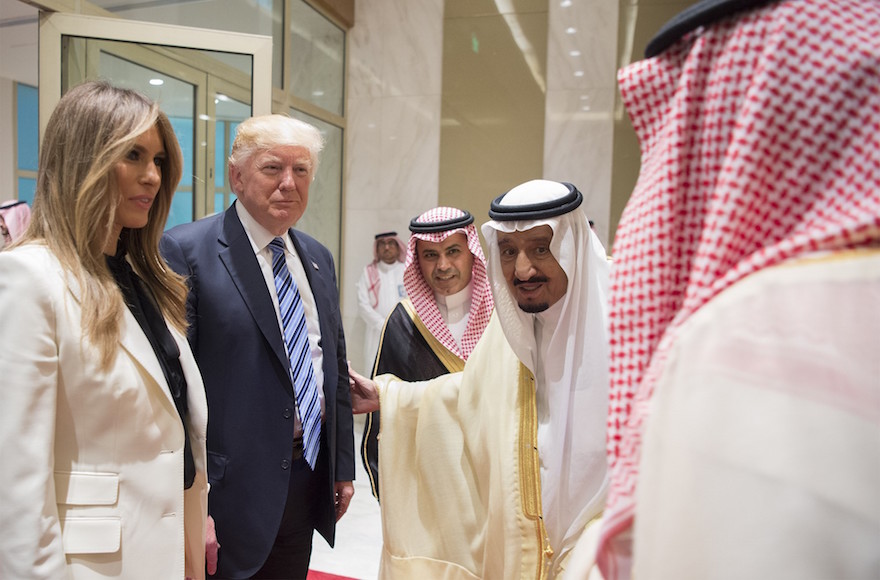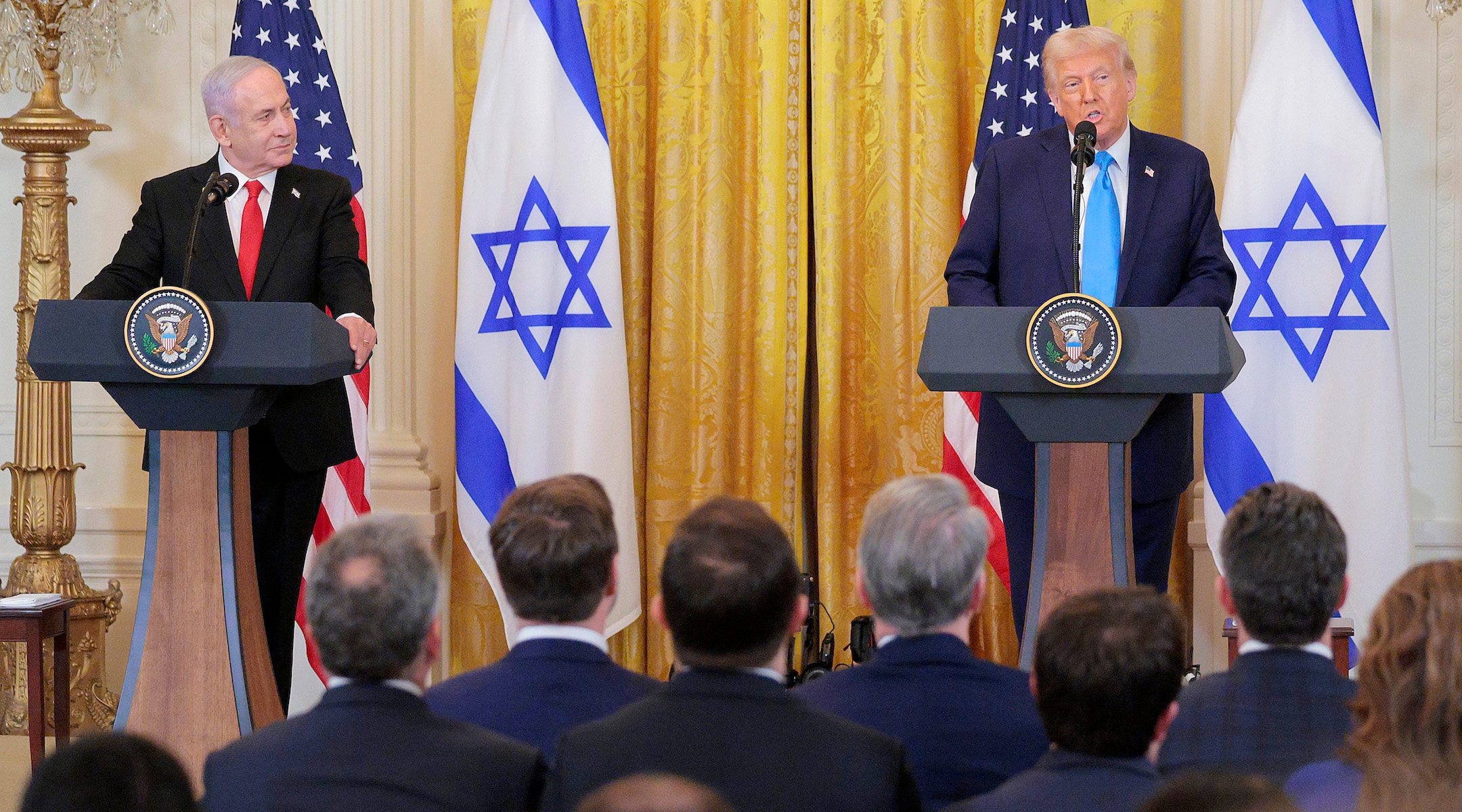WASHINGTON — For Benjamin Netanyahu, the world just got a little smaller.
Israel’s prime minister has long touted his worldwide network of relationships and years of experience working with foreign leaders. But now that the International Criminal Court has issued a warrant for his arrest, he’ll face incarceration if he sets foot in countries where he once strode with ease.
In 1996, he was the first Israeli prime minister ever to visit Ireland. Now, the country has pledged to abide by the warrant if Netanyahu lands there.
In 2016, the Dutch prime minister extended a “warm welcome” to Netanyahu as the two leaders stood side by side in Amsterdam. On Thursday, the Netherlands pledged to arrest him if he returns.
The United States, like Israel, is not a party to the ICC, and has condemned the warrants against Netanyahu and former Israeli Defense Minister Yoav Gallant.
But the same cannot be said of its neighbor to the north: Canada, which once exported tens of millions of dollars’ worth of arms to Israel, has now said it will abide by the ICC warrant as well.
The countries’ pledges put Israel, which has long feared the prospect of international boycotts, in uncharted waters. On Thursday, the ICC issued warrants for Netanyahu and Gallant, charging them with war crimes and crimes against humanity over Israel’s conduct in Gaza. It also issued a warrant for Mohammed Deif, a Hamas commander believed to be dead.
The warrants for Netanyahu and Gallant were themselves an unprecedented step. But it quickly became clear that the warrant for the prime minister also carried concrete consequences for Israel’s standing in the world — and even among countries it considered allies. Aside from damaging Israel’s foreign relations, the warrant puts a serious crimp on Netanyahu’s ability to travel as he seeks to defend the country’s conduct in its multi-front war.
“This may boost Bibi’s hometown cred and bunker mentality, but Israel is now a pariah,” tweeted Shai Franklin, a former top staffer for Jewish organizations who now works as a government consultant, using Netanyahu’s nickname.
In addition to Canada, the Netherlands and Ireland, Switzerland has also said it will abide by the warrants. A number of other Western countries, including Britain, France, Italy and Sweden, remained non-committal. Others that are led by conservative ideological allies of Netanyahu — including Austria, Argentina and Hungary — have said they will ignore the warrants.
More than 120 countries — a majority of the world — are signatories of the statute establishing ICC. In principle, that means Netanyahu and Gallant risk arrest if they travel to any of them. But in reality, the countries are split.
Justin Trudeau, the Canadian prime minister, framed his agreement to comply as other countries did — less in agreement with the court’s conclusions and more as a matter of abiding by international law.
“As Canada has always said, it’s really important that everyone abide by international law,” Trudeau said in a press conference. “This is something we’ve been calling on from the beginning of the conflict. We are one of the founding members of the International Criminal Court, International Court of Justice. We stand up for international law, and we will abide by all the regulations and rulings of the international courts.”
Switzerland also said, according to Reuters, that its obligations under the 1998 Rome Statute, which established the ICC, required it to abide by arrest warrants.
Other countries were less definitive. Officials in France and Britain recognized the independence of the ICC, but declined to say whether they would act on the warrants.
A spokesman for British Prime Minister Keir Starmer called the court “the primary institutional institution for investigating and prosecuting the most serious crimes in relation to international law,” according to The Telegraph, but added that “Israel has a right to defend itself in accordance with international law. There is no moral equivalence between Israel, a democracy, and Hamas and Lebanese Hezbollah, which are terror groups.”
Argentine Prime Minister Javier Milei, a staunch ally of Israel’s, decried the warrants for Netanyahu and Gallant as “an act that distorts the spirit of international justice.” Milei added in his statement, “This resolution ignores Israel’s legitimate right to defend itself against constant attacks by terrorist organizations such as Hamas and Hezbollah.”
A statement posted by the Hungarian ambassador to the United States, on behalf of the country’s Foreign Ministry, said the decision “brought shame to the international court system by equating the prime minister of a country attacked with a diabolical terrorist attack and the leaders of the terrorist organization that carried out the diabolical attack.”
The warrant for Netanyahu’s arrest comes more than a year after the ICC issued a warrant for the arrest of Vladimir Putin over Russia’s invasion of Ukraine. Countries have been split over enforcing that warrant as well — Putin traveled to Mongolia, a signatory, without incident — but U.S. Secretary of State Antony Blinken urged all of the parties to the ICC to “fulfill their obligations” to the court when it comes to Putin.
In Israel’s case, the Biden administration has criticized the decision, and President-elect Donald Trump is likely to go further: In his first term, he sanctioned the ICC for contemplating cases against American personnel. Biden removed the sanctions, but Trump’s incoming national security adviser, Mike Waltz, hinted on X that they may be invoked again. “You can expect a strong response to the antisemitic bias of the ICC & UN come January,” Waltz said.
South Carolina Sen. Lindsey Graham, a close Trump ally, said he would introduce legislation to take action against countries that abided by the warrants.
Such a law already exists, passed in 2002 after the United States invaded Afghanistan in the wake of the Sept. 11, 2001 terror attack. It says the president can use “all means necessary” to free a U.S. citizen or a citizen of an allied country held on a warrant issued by the ICC. One nickname for the law is “The Hague Invasion Act,” and Arkansas Sen. Tom Cotton, a Republican, suggested that it could be more than a nickname.
“The ICC is a kangaroo court and Karim Khan is a deranged fanatic,” Cotton said on X, referring to the court’s chief prosecutor. “Woe to him and anyone who tries to enforce these outlaw warrants. Let me give them all a friendly reminder: the American law on the ICC is known as The Hague Invasion Act for a reason. Think about it.”
Support the Jewish Telegraphic Agency

Help ensure Jewish news remains accessible to all. Your donation to the Jewish Telegraphic Agency powers the trusted journalism that has connected Jewish communities worldwide for more than 100 years. With your help, JTA can continue to deliver vital news and insights. Donate today.









 English (US) ·
English (US) ·